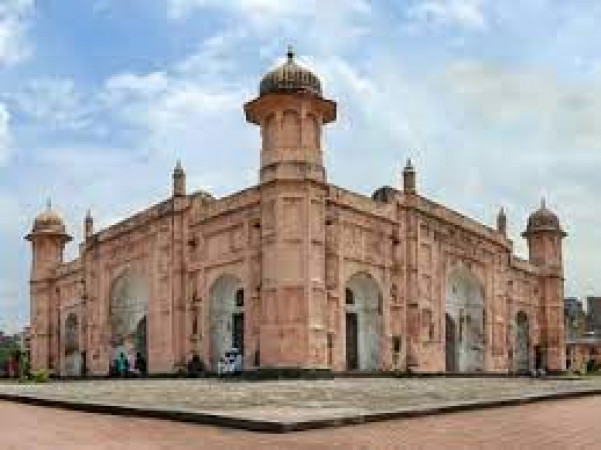
Killa Arak
Duration
1 to 2 Days
1 to 2 Days
Best time to visit
Oct-Dec
Oct-Dec
Theme
Heritage
Heritage
Killa Arak Travel Guide
Killa Arak, located in the heart of the Middle East, is a destination rich in history, culture, and natural beauty. This ancient city dates back to centuries and has been influenced by various civilizations, making it a melting pot of traditions. Known for its stunning architecture, bustling markets, and warm hospitality, Killa Arak offers a unique travel experience to all who visit.Top Attractions in Killa Arak
- Killa Arak Citadel
- Souq Al-Qaysariya
- Al-Mustansiriya School
- Al-Saray Market
- Al-Nouri Mosque
Killa Arak is Famous for
Historic landmarks and vibrant markets are what Killa Arak is most famous for.Top Attractions in Killa Arak
- Explore the ancient Killa Arak Citadel
- Shop for unique souvenirs at Souq Al-Qaysariya
- Visit the historic Al-Mustansiriya School
- Experience the bustling atmosphere of Al-Saray Market
- Admire the stunning architecture of Al-Nouri Mosque
What's Great about Travelling to Killa Arak?
- Rich historical sites to explore
- Authentic cultural experiences
- Warm and welcoming locals
What's Not So Great about Travelling to Killa Arak?
- Limited public transportation options
- Extreme temperatures during certain seasons
- Language barrier for non-Arabic speakers
Travel Tips for Killa Arak
- Check visa requirements before traveling
- Hire a local guide for a better understanding of the city
- Respect local customs and traditions
Important Killa Arak trip information
- Ideal Duration: Spend at least 3-4 days to explore the city
- Best Time to Visit: Spring and fall for pleasant weather
- Nearby Airports and Railway Stations: Killa Arak International Airport, Killa Arak Central Station
FAQ's on Killa Arak
Q1: What is the best time to visit Killa Arak?
The best time to visit Killa Arak is during the spring months of April and May or the fall months of September and October when the weather is mild and pleasant. These seasons offer comfortable temperatures for exploring the country’s attractions without extreme heat or cold. Additionally, Killa Arak hosts cultural events and festivals during these times, adding to the overall experience for tourists.
Q2: Do I need a visa to travel to Killa Arak?
Tourists visiting Killa Arak typically require a visa for entry. However, some nationalities may be exempt from visa requirements or eligible for visa-on-arrival arrangements. It is advisable to check the specific visa regulations based on your nationality before planning your trip to Killa Arak.
Q3: What are the must-visit attractions in Killa Arak?
Killa Arak boasts a rich cultural heritage and diverse landscapes. Some of the must-visit attractions include the ancient ruins of Arak Citadel, the vibrant bazaars of Killa Bazaar, and the breathtaking natural beauty of the Arak Valley. Travelers should also explore the historic mosques and traditional villages to experience the local lifestyle and architecture.
Q4: Is Killa Arak a safe place to travel?
Killa Arak is generally considered a safe destination for travelers. However, like any other place, it is essential to exercise caution, especially in crowded areas and be mindful of your belongings. It is advisable to follow local customs and adhere to safety guidelines provided by authorities.
Q5: What is the local currency in Killa Arak and can I use credit cards?
The local currency in Killa Arak is the Araki Dollar (A$). While credit cards are accepted in major establishments in urban areas, it is recommended to carry cash for transactions in smaller shops and markets. ATMs are also available in cities for convenient access to local currency.
Q6: What is the local cuisine like in Killa Arak?
Araki cuisine is a delightful blend of flavors influenced by neighboring regions. Must-try dishes include kebabs, pilaf, and various stews served with flatbread. Vegetarians can enjoy dishes like ash-e reshteh (noodle soup) and sabzi polo (herb rice). Travelers with dietary restrictions can easily find options like salads and fresh fruits in local eateries.
Q7: What transportation options are available in Killa Arak?
Killa Arak offers various transportation options for travelers, including public buses, taxis, and car rentals. Public transportation is efficient and affordable, connecting major cities and tourist sites. Taxis are readily available for shorter distances, while car rentals provide flexibility for exploring remote areas and scenic routes.
Q8: Are there any cultural norms or etiquette I should be aware of when visiting Killa Arak?
When visiting Killa Arak, it is important to respect local customs and traditions. Greeting people with a smile and showing politeness is highly appreciated. Modest dress is recommended, especially when visiting religious sites or rural areas. It is customary to remove shoes before entering homes or mosques. Additionally, asking permission before taking photographs of locals is a sign of respect.
Q9: I am a travel agent. How can I buy travel leads of Killa Arak?
Register yourself as a travel agent at agents.tripclap.com and then you can buy travel leads to Killa Arak once your account is approved. For more details contact our support team at +91-8069186564 or support@tripclap.com
